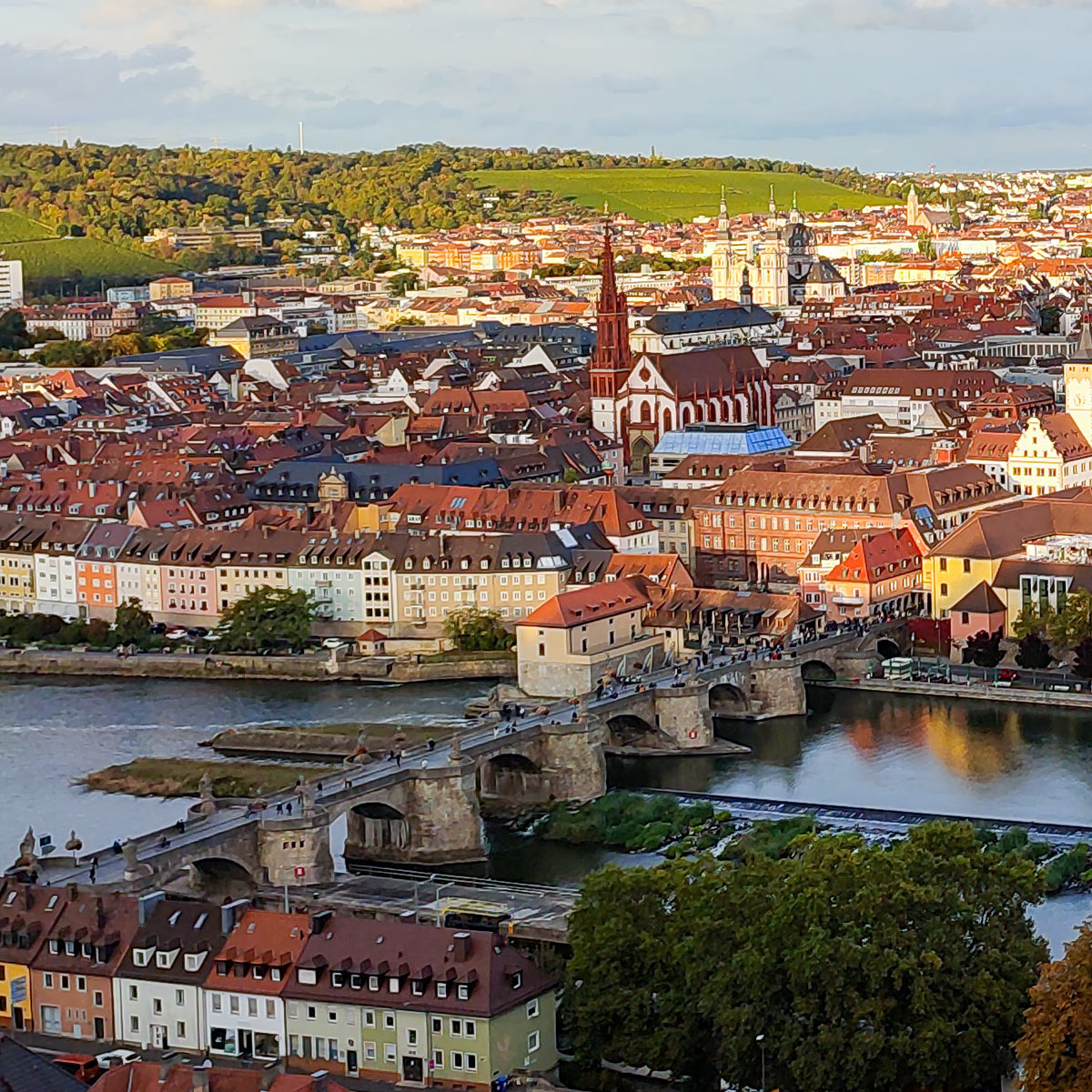
Würzburg
Nestled in the heart of Bavaria, Würzburg is a city that captivates visitors with its rich historical significance, beautiful architecture, and vibrant modern-day atmosphere. While not as widely known as other major German cities, Würzburg has long been an important cultural, political, and religious hub, offering a blend of past and present that enchants every traveler. Whether you're a history buff, wine lover, or architecture enthusiast, Würzburg has something unique to offer.
A Glimpse into Würzburg's Historical Significance
Würzburg's story begins more than a millennium ago, dating back to 704 AD when it was first mentioned as "Virteburch." The city became a vital religious center, as evidenced by the grand Würzburg Cathedral, which began construction in the 11th century. The prince-bishops of Würzburg were instrumental in shaping the city’s legacy, especially during the Baroque period. Their grand ambitions culminated in the construction of the Würzburg Residence, a UNESCO World Heritage site.
The Würzburg Residence stands as a testament to the city's historical significance and architectural prowess. Built in the 18th century, this palace is considered one of the most important Baroque palaces in Europe, featuring opulent rooms, vast gardens, and the world’s largest ceiling fresco by the renowned Italian artist, Giovanni Battista Tiepolo.
The city also played a significant role in World War II, enduring severe bombings that destroyed much of its medieval old town in March 1945. However, the resilience of Würzburg’s people shone through as they meticulously rebuilt their city to its former glory, preserving its historical charm while embracing modernity.
Top 5 Unique Characteristics of Würzburg
1. The Würzburg Residence
This majestic palace is the crown jewel of Würzburg. Its stunning Baroque architecture, magnificent interiors, and expansive gardens attract thousands of tourists annually. The Residence is also a center for concerts and events, making it a cultural hotspot.
2. Wine Culture and the Franconian Wine Region
Würzburg lies in the heart of Franconia, one of Germany’s most famous wine-growing regions. Visitors can enjoy local wine at the traditional Weinfests (wine festivals) or take a trip to the vineyards surrounding the city, especially the famous Würzburger Stein vineyard.
3. Marienberg Fortress
Perched atop a hill overlooking the city, the Marienberg Fortress offers spectacular panoramic views of Würzburg and the Main River. The fortress itself is a historical marvel, serving as a stronghold for the prince-bishops for centuries.
4. The Alte Mainbrücke (Old Main Bridge)
A picturesque stone bridge adorned with statues of saints, the Alte Mainbrücke is the perfect spot to take in views of the river and surrounding vineyards. Grab a glass of wine and join the locals for a relaxed evening on the bridge.
5. University of Würzburg
Founded in 1402, this university is one of the oldest in Germany and counts Nobel laureates such as Wilhelm Conrad Röntgen, the discoverer of X-rays, among its alumni. Its research contributions, especially in the sciences, continue to have global significance.
Würzburg in the Modern Day
Würzburg today is a bustling, modern city with a lively cultural scene, driven in part by its large student population. It hosts numerous festivals, including the Mozart Festival and Africa Festival, which highlight both its classical heritage and cosmopolitan vibe. The city's integration of its historical identity with contemporary trends makes it an exciting destination for travelers.
The city's culinary scene is equally vibrant, combining traditional Franconian cuisine with modern twists. And of course, wine remains at the heart of social life, with numerous wine bars and restaurants offering local delicacies paired with regional wines.
Fun Facts About Würzburg
Wine Enthusiasts' Paradise: Würzburg is the starting point of the famous Romantische Straße (Romantic Road), a picturesque route dotted with historical towns and vineyards.
The Largest Ceiling Fresco in the World: The Würzburg Residence boasts a ceiling fresco measuring a whopping 677 square meters!
Rebirth from the Ashes: The city was 90% destroyed during WWII but was remarkably rebuilt, restoring many of its historical buildings to their original grandeur.
A Hotbed for Science: Würzburg is home to the discovery of X-rays by Wilhelm Röntgen, whose groundbreaking work earned him the first Nobel Prize in Physics in 1901.
In summary, Würzburg is a captivating city that offers a deep dive into history, culture, and modern-day life. From its Baroque architecture and wine culture to its vibrant present, Würzburg beckons as a top destination for those seeking both relaxation and adventure.